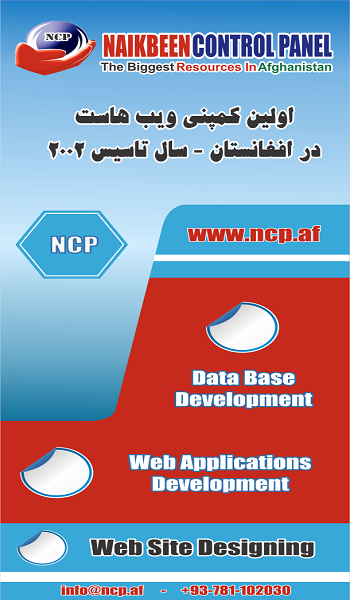The United Nations Assistance Mission in Afghanistan (UNAMA) is a UN Special Political Mission established to assist the state and the people of Afghanistan in laying the foundations for sustainable peace and development. UNAMA was established on 28 March 2002 by United Nations Security Council Resolution 1401. Its original mandate was to support the implementation of the Bonn Agreement (December 2001). Reviewed annually, this mandate has been altered over time to reflect the needs of the country and was extended for six months, on 17 September 2021, by UN Security Council Resolution 2596 (2021).
The Council also requested the Secretary-General to prepare a written report by 31 January 2022 outlining “strategic and operational recommendations for the mandate of UNAMA in light of recent political, security, and social developments” in Afghanistan.
UNAMA is headed by the Special Representative of the Secretary-General (SRSG) for Afghanistan, Deborah Lyons, who was appointed to the post in March 2020, replacing Tadamichi Yamamoto. Previous SRSG’s were– Lakhdar Brahimi who served from October 2001 to January 2004; Jean Arnault from February 2004 to February 2006, followed by Tom Koenigs from March 2006 to December 2007, Kai Eide from 2008 to 2010, Staffan di Mistura from 2010 to 2011, Ján Kubiš from 2012 to 2014, Nicholas Haysom from 2014 to 2016 and Tadamichi Yamamoto from 2016 to 2020.
Since 2008, and following a directive of the UN Secretary-General, UNAMA is an integrated mission. This means that the Special Political Mission, all UN agencies, funds and programmes, work in a multidimensional and integrated manner to better assist Afghanistan according to nationally defined priorities.
The SRSG is responsible for all UN activities in the country and directly oversees the Security Section, Strategic Communication Service, Human Rights Section, and Peace and Reconciliation. The SRSG’s Chief of Staff oversees UNAMA’s Field Offices.
Two deputy Special Representatives (DSRSG) oversee the main pillars of the mission – political and developmental issues. Included under these pillars are mission sections specializing in issues such as political analysis, reporting, and outreach, and donor coordination, as well as the coordination of UN agencies funds and programmes.
DUTIES AND RESPONSIBILITIES
The Associate Conduct and Discipline Officer reports to the Chief of the Integrated Conduct and Discipline Unit (ICDU). Within delegated authority, the Associate Conduct and Discipline Officer will be responsible for the following duties:
QUALIFICATIONS AND EXPERIENCE
Education: Advanced University degree (Master’s degree or equivalent) in social sciences, Finance, Business Administration or related fields. A first level university degree with a relevant combination of academic qualifications and experience may be accepted in lieu of the advanced university degree.
Work Experience: A minimum of two (2) years of progressive responsible experience in positions in the field of conduct and discipline, law, human rights and/or human resources management. Experience with data management including databases is desirable. Experience with the application of UN rules and regulations related to conduct and discipline is desirable, as well as experience in UN peacekeeping missions.
Languages: English and French are the working languages of the United Nations Secretariat. For the post advertised, fluency in oral and written English is required. Fluency in oral and written Dari and Pashto is desirable.
Special measure: The minimum work experience for NO-B with a relevant master’s degree is reduced to one (1) year, instead of the standard minimum required work experience of two (2) years, and it is reduced to two (2) years, instead of the standard minimum required work experience of four (4) years with a relevant bachelor’s degree. The special measure is extended until 31 December 2022 reduces the minimum required years of relevant work experience for filling positions for UNAMA General Service and National Professional Officer positions. The special measure is applicable to all applicants.
UN CORE VALUES AND COMPETENCIES
Professionalism: Shows persistence when faced with difficult problems or challenges. Shows pride in work and in achievements; demonstrates professional competence and mastery of subject matter; is conscientious and efficient in meeting commitments, observing deadlines and achieving results; is motivated by professional rather than personal concerns; shows persistence when faced with difficult problems or challenges; remains calm in stressful situations.
Communication: Speaks and writes clearly and effectively. Listens to others, correctly interprets messages from others and responds appropriately. Asks questions to clarify and exhibits interest in having two-way communication. Tailors language, tone, style and format to match the audience. Demonstrates openness in sharing information and keeping people informed.
Accountability: Takes ownership of all responsibilities and honors commitments. Delivers outputs for which one has responsibility within prescribed time, cost and quality standards. Operates in compliance with organizational regulations and rules. Supports subordinates, provides oversight and takes responsibility for delegated assignments. Takes personal responsibility for his/her own shortcomings and those of the work unit, where applicable.
APPLICATIONS
Required documents to be submitted along with the signed and completed UN P.11:
No fee:
The United Nations does not charge a fee at any stage of the recruitment process (application, interview meeting, processing, or training). The United Nations does not concern itself with information in applicants bank account.
unamava_substantive@un.org


